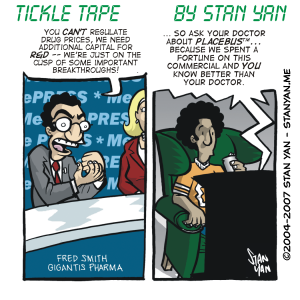Top-notch traders trade in a higher psychological sphere. Trading is a peak experience where everything seems to click. Winning traders trade in the zone. They reach a psychological state that is inherently rewarding. The more you can reach this higher psychological sphere, the more profitable you will trade in the long run.
How does one trade in a higher psychological sphere? It’s vital that you satisfy lower-order needs, such as a need for self-esteem or recognition, so that you can focus on satisfying higher-order psychological needs, such as self-actualization and self-fulfillment. For example, when trying to satisfy a need for self-esteem or recognition, one may think that becoming a success will help him or her feel safe, secure, and loved. This belief can cause major problems when trading, for a variety of reasons.
First, placing too much emphasis on the outcome is bound to be distracting. Second, believing all your needs will be satisfied through trading will likely increase your fear, anxiety, and tension. Third, these unpleasant and distracting emotions will tend to interfere with your accurate assessment of market conditions and disrupt any clear-headed decision making, hurting your performance and creating a vicious circle of defeat.
What motivates your trading? Do you trade to satisfy social and emotional needs? Do you trade primarily to increase your feelings of safety and security? How do you remedy the situation if you are trying to satisfy these lower-order needs? To remedy this, consider satisfying your safety and security needs in other ways. For example, you could set lower standards for your lifestyle. Trying to maintain a rich, luxurious lifestyle will almost certainly interfere with your trading success. Most successful traders report they have settled into a lifestyle that does not depend very much, if at all, on their trading success.
Other social needs that may interfere with your trading performance, and should be addressed outside of trading, including the desire for friendship, affection, and love. Some individuals believe that trading is going to improve their ability to form satisfying relationships. For example, many people believe that if they had enough money, their relationships would be far more satisfying. Although this seems reasonable, it is a fallacy. Wealthy people are no better at gaining love and affection than poor people. If you are hoping that your relationships will improve when you make more money through trading, you are mistaken. It’s a far better approach to limit your trading activity and take other steps to develop more satisfying relationships.
You may also trade because you desire recognition, appreciation, prestige, and status. It’s true that some individuals may give additional respect to those who have a lot of money, but not everyone cares. In addition, needing others’ respect can be very difficult and disappointing. In the end, the road to happiness and success involves having respect for yourself. If you are hoping that you will somehow gain respect through making a bunch of winning trades, you will almost certainly be disappointed, and this drive for respect and continuing disappointment will interfere with a higher sphere of existence.
Transforming the trading experience into an optimal experience may not be easy, but it’s something that the most profitable traders have achieved and sustain. Make sure that your social and emotional needs are satisfied outside of trading, and that you are able to focus intensely on the trading experience itself. If you can do so, you’ll find trading interesting, enjoyable and engaging, and trade in a higher psychological sphere.


